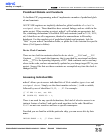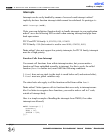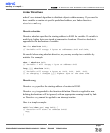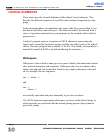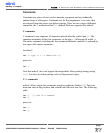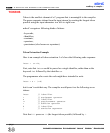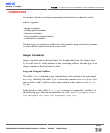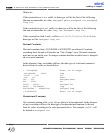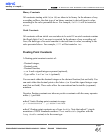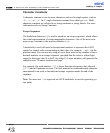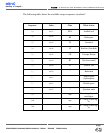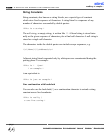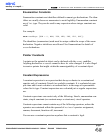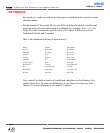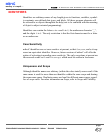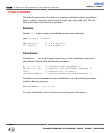
Binary Constants
All constants starting with
0b (or 0B) are taken to be binary. In the absence of any
overriding suffixes, the data type of an binary constant is derived from its value,
according to the rules presented above. For example, 0b11101 will be treated as
short.
Octal Constants
All constants with an initial zero are taken to be octal. If an octal constant contains
the illegal digits 8 or 9, an error is reported. In the absence of any overriding suf-
fixes, the data type of an octal constant is derived from its value, according to the
rules presented above. For example,
0777 will be treated as int.
Floating Point Constants
A floating-point constant consists of:
- Decimal integer,
- Decimal point,
- Decimal fraction,
-
e or E and a signed integer exponent (optional),
- Type suffix: f or F or l or L (optional).
You can omit either the decimal integer or the decimal fraction (but not both). You
can omit either the decimal point or the letter
e (or E) and the signed integer expo-
nent (but not both). These rules allow for conventional and scientific (exponent)
notations.
Negative floating constants are taken as positive constants with the unary operator
minus (
-) prefixed.
mikroC limits floating-point constants to range
±1.17549435082E38 .. ±6.80564774407E38.
mikroC floating-point constants are of type
double. Note that mikroC’s imple-
mentation of ANSI Standard considers
float and double (together with the
long double variant) to be the same type.
MikroElektronika:
Development
tools
-
Books
-
Compilers
41
page
mikroC
- C Compiler for Microchip PIC microcontrollers
mikroC
making it simple...



